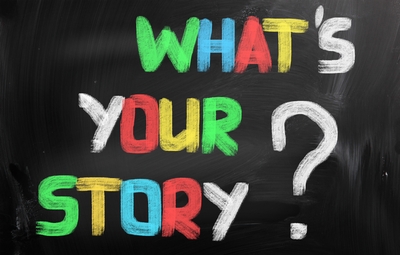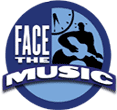How to Tell a Good Story
Let's start with the basics: You already know how to tell a good story. You do. You've been telling stories your entire life. Today, you probably told at least a few. And later, tonight, you will probably tell some more -- whether they are merely accounts of your day, a memorable encounter you had at work, or a reminiscence from days gone by.
Story is the ocean we are swimming in. And because it is, we don't necessarily feel wet when we're in it, but we are.
Fish aren't taught to swim. And you aren't taught to tell stories. As a child, you didn't need to be taught. All you needed was to hear them and them tell them to others -- which you did -- everything from The Three Little Pigs to Jack and the Beanstalk to the excuses you laid on your teachers for not handing in your homework on time.
Of course, if you had to teach someone how to tell a story in the next ten minutes, you would probably resist because you don't necessarily know how you do it. But just because you don't, doesn't mean you lack the knowledge or the skill. You don't. It's in there. It is.
Storytelling is what psychologists refer to as an "unconscious competence" -- a skill, like walking, eating, or complaining that has become second nature to us. It's in our bones and has been since we were very young. And while you may not be as skillful a storyteller as Garrison Keillor, you don't need to be a Garrison Keillor in order to be a good storyteller. In fact, you don't want to be Garrison Keillor. You want to be yourself. Because being yourself is one of the secrets to being a good storyteller.
Is this just a story I'm telling you -- a way to pump you up and get you past your resistances? No, it's not. Having been a professional communicator for the past 27 years and having worked with thousands of people from just about every industry on planet Earth, I've seen, first hand, the extraordinary, untapped and unexpressed ability people have to go beyond their assumptions of who they are, what they do, and how they do it.
Where to begin? With one simple commitment: To stop telling yourself the story that you don't know how to tell a good story.
Willing? If so, the rest of this essay is for you. Unwilling? No problem. Either skip the next few paragraphs or take a nap. Ultimately, there is only one thing you need to know if you want to tell a good story: Storytelling is part art and part science. And of the two, it's more about the art than it is about the science.
Communicating your humanity is the art. The more human you are willing to be (i.e. not perfect, not an expert, not a superhero), the more likely it is that people will connect with your story.
The key to communicating your humanity? Your passion for telling your story, your respect for your audience, your authenticity, your understanding that people will get what they need without you teaching or preaching, and your ability to engage the attention of the people you are telling your story to. All of the preceding requires the right application of eight subtle factors: voice tonality, body language, facial gestures, hand movement, pacing, adapting to the non-verbal cues from your audience, how evocative you are, and the choice of what details to include, embellish, or ignore.
Can these factors be learned? Of course they can -- much in the same way that aspiring actors go to acting class. But the real key to successful storytelling is less about study than it is about practice. The more stories you tell, the better you'll get. It's as simple as that. Real-time, you'll figure out what works and what doesn't work and then make the necessary adjustments in order to improve.
The science of telling a good story is much less complicated that you think. Fundamentally, it's about structure and the inter-relationships of the elements that comprise the structure. Just like a house needs a foundation, framing, walls, and a roof if it wants to fulfill its purpose, a story needs structure, too. Once you understand the elements of story structure, you're on your way.

What are those elements? There are five, just like the fingers on the hand you use to make a point.
1. Setting (where your story takes place)
2. Character (the hero/heroine/protagonist who has adventures)
3. Plot (the events that unfold, the arc of what happens)
4. Conflict (the obstacles the characters encounter)
5. Theme (the resolution of the conflict, what's been learned along the way)
Post a comment
Thanks for signing in, . Now you can comment. (sign out)
(If you haven't left a comment here before, you may need to be approved by the site owner before your comment will appear. Until then, it won't appear on the entry. Thanks for waiting.)














